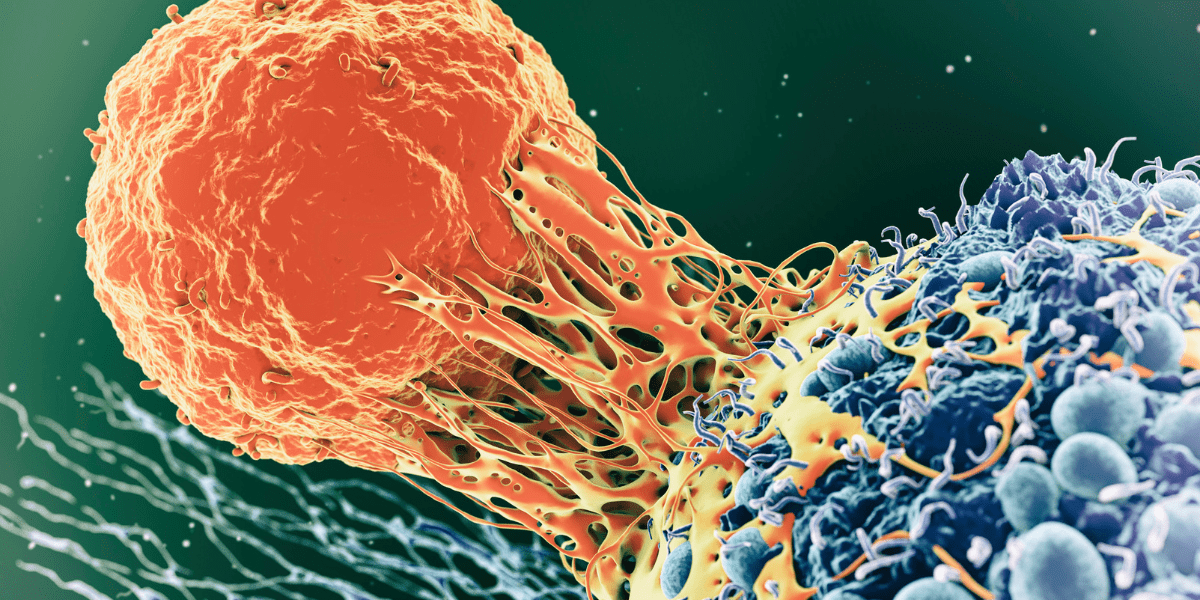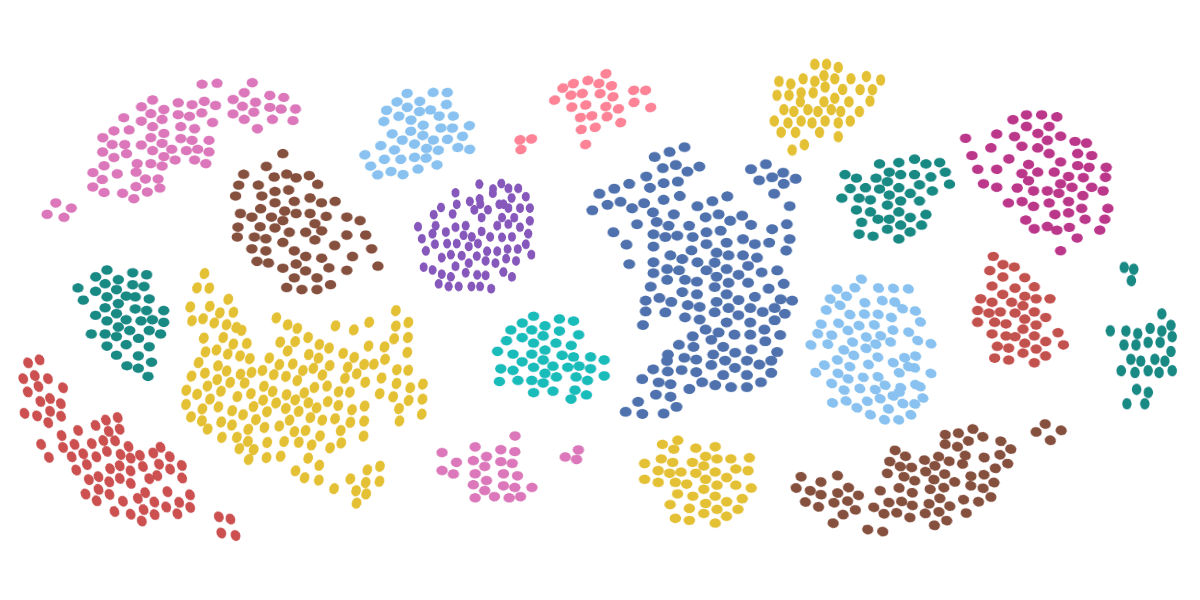Unlocking the Power of Immune Cells in the Battle Against Cancer

The immune system, a complex network of cells, tissues, and organs, helps the body fight infections and other diseases. In the case of cancer, however, the immune system sometimes struggles to target the disease because cancer cells can disguise themselves as normal cells. Three recent publications explore immunotherapy in prostate cancer treatment, immune checkpoint inhibitor-associated myocarditis, and breast cancer. Here’s an overview of immunotherapy and how the WOLF Cell Sorter was used for these three customer’s research.
A Brief Immunotherapy Overview
Immunotherapy works in several ways:
1) Boosting the immune system’s overall response: Some forms of immunotherapy aim to enhance the immune system to better detect and combat cancer cells.
2) Training the immune system to specifically target cancer cells: Other forms of immunotherapy involve identifying specific proteins (antigens) on the surface of cancer cells and then training the immune system to search out and destroy cells that present these antigens.
Examples of immunotherapy include immune checkpoint inhibitors, T-cell therapy, monoclonal antibodies, and treatments that boost the body’s immune system in a general way, such as interferons or interleukins.
One of the significant advantages of immunotherapy is that it can provide long-term protection against cancer because the immune system has a memory. This means it learns to recognize and target cancer cells, so if the cancer returns it is prepared to fight it again. It is worth noting that not every type of cancer responds to immunotherapy. In some cases, it can cause severe or even life-threatening side effects due to overstimulation of the immune system, so the suitability of immunotherapy is determined on a case-by-case basis.
Recent studies have expanded the boundaries of our knowledge of cancer immunotherapy, developing novel treatment strategies and providing a deeper understanding of immune responses to cancer. These compelling investigations offer fresh perspectives in this rapidly advancing field.
Immunotherapy for Prostate Cancer Treatment
The first study, published in Clinical and Translational Medicine, has shed light on improving treatments for castration-resistant prostate cancer (CRPC), a type of cancer that is notoriously resistant to conventional cancer therapies. The researchers focused on the role of Chimeric Antigen Receptor Natural Killer (CAR NK-92) cells programmed to target the prostate-specific membrane antigen (PSMA), and the immune protein PD-L1, implicated in cancer immune responses. They used the WOLF Cell Sorter to isolate and analyze these specific cell populations.
The study identified significant upregulation of PD-L1 expression in cocultured cancer (C4-2) and CAR NK-92 cells. Anti-PD-L1 monoclonal antibodies (mAb) augmented the cytotoxicity of CAR NK-92 cells against the cancer cells, enhancing their antitumor effect. This combined treatment strategy significantly improves antitumor efficacy against CRPR, suggesting a potentially revolutionary approach to CRPC clinical treatment.
Understanding Immune Checkpoint Inhibitor-Associated Myocarditis
Immune checkpoint inhibitors (ICIs) are a cornerstone of cancer immunotherapy and have been linked to severe toxicities such as myocarditis. The second study, published in Nature, targeted this issue, exploring the poorly understood pathogenesis of ICI-associated myocarditis (ICI-MC). The WOLF Cell Sorter again proved valuable in facilitating high-precision sorting and analysis of specific T-cell populations.
They found that clonal effector CD8+ T cells were the dominant cell population in myocardial inflammation in a specific mouse model of ICI-MC. They also identified the cardiac-specific protein α-myosin-expanded T cells in the blood of patients with ICI-MC, shared TCR clonotypes with diseased heart and skeletal muscles. These findings highlight the critical role of cytotoxic CD8+ T cells and provide valuable insights into the pathogenesis of ICI toxicity.
Developing a Novel Immunotherapy for Breast Cancer
Breast cancer’s resistance to immunotherapies is a significant challenge. The third study, published in Science Advances, took an innovative approach to this problem by developing a personalized active immunotherapy based on an engineered nanovesicle. Using the WOLF Cell Sorter, they could accurately isolate target cell populations for therapeutic development.
They engineered the nanovesicle to display major histocompatibility complex-bound antigens and T cell-promoting costimulatory factors. The nanovesicle was designed to guide itself to lymphoid organs and activate the IL-2 receptor on lymphocytes, thereby triggering a strong immune response. This treatment, named IL2-ep13nsEV, showed promising results in preclinical models, sensitizing cancer cells to immune checkpoint inhibitor treatment and preventing the recurrence of resected tumors.
———
These studies underscore the potential of immunotherapy in treating various forms of cancer. By exploring the molecular mechanisms, harnessing the power of immune cells, and employing tools like the WOLF Cell Sorter, researchers are getting closer to more effective, personalized, and less toxic cancer treatments.
Curious about more publications by WOLF users? Check out our Scientific Publications page or check back for more blog posts like this one, such as our recent post about a customer’s publication in nature on the metabolism of cancer cells and immune cells in the tumor microenvironment. Have any questions? Get in touch with us at [email protected]!
References:
- Wang, F.-M., Wu, L., Yin, L., Shi, H., Gu, Y., & Xing, N. (2022). Combined treatment with anti‐PSMA CAR NK‐92 cell and anti‐PD‐L1 monoclonal antibody enhances the antitumour efficacy against castration‐resistant prostate cancer. 12(6). https://doi.org/10.1002/ctm2.901
- Axelrod, M. L., Meijers, W. C., Screever, E. M., Qin, J., Carroll, M. G., Sun, X., Tannous, E., Zhang, Y., Sugiura, A., Taylor, B. C., Hanna, A., Zhang, S., Amancherla, K., Tai, W., Wright, J. J., Wei, S. C., Opalenik, S. R., Toren, A. L., Rathmell, J. C., & Ferrell, P. B. (2022). T cells specific for α-myosin drive immunotherapy-related myocarditis. Nature, 611(7937), 818–826. https://doi.org/10.1038/s41586-022-05432-3
- Wu, K., Lyu, F., Wu, S.-Y., Sharma, S., Phanithi Prakash Babu, Tyagi, A., Zhao, D., Xing, F., Singh, R., & Watabe, K. (2023). Engineering an active immunotherapy for personalized cancer treatment and prevention of recurrence. 9(17). https://doi.org/10.1126/sciadv.ade0625



